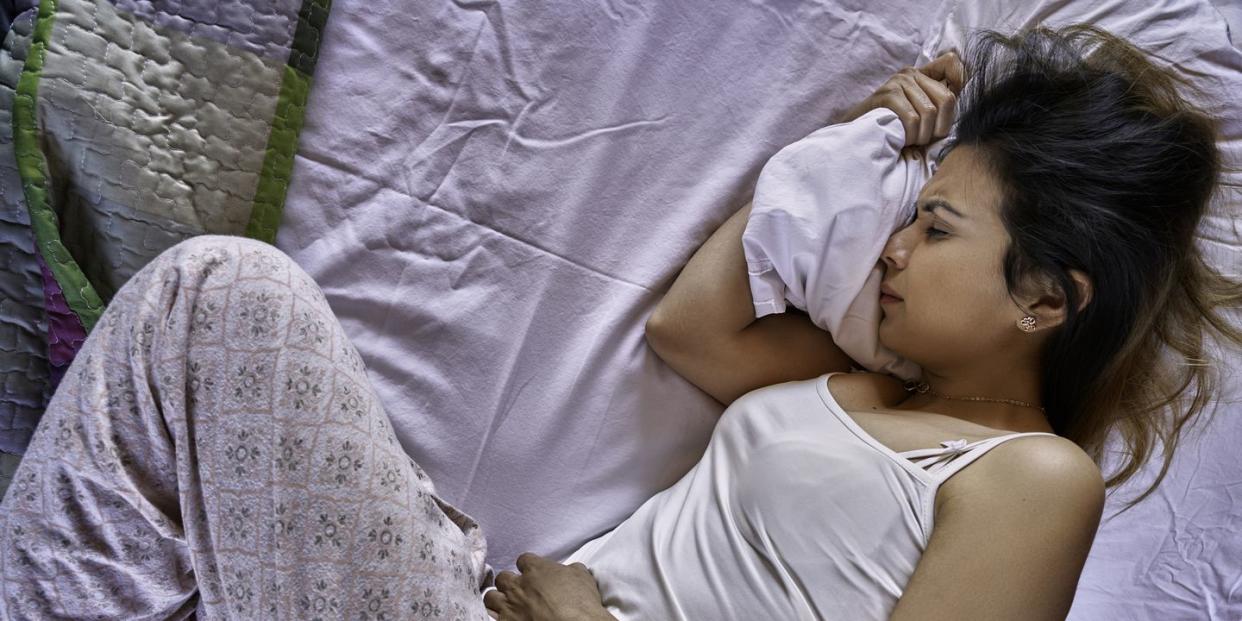Girls are getting their first periods at younger ages. So, why?

Girls are getting their first periods at a younger age, according to a new study. Research conducted by Harvard University's public health school found that, in the US, the time of a person's first menstrual bleed is declining, particularly in those from lower-income backgrounds and racial minorities.
The typical time frame in which menstrual cycles become regular has also been found to be increasing.
What did the research show?
Over 70,000 people were enrolled in the study, in which they self-reported the age at which they began menstruating, as well as their race and socioeconomic status via an app. Participants were divided into five age brackets: those born between 1950 - 1969; 1970 - 1979; 1980 - 1989; 1990 - 1999 and 2000 - 2005.
Researchers found that the later the birth year, the lower the average age at which the first period was experienced. For the purposes of the study, researchers defined a 'very early' first period as arriving at nine or younger, an 'early' one as arriving at 11 or younger and late as occurring after 16.
The breakdown
Participants born from 1950 - 1969
Average age of the first period: 12.5 years
Rates of early first period: 8.6%
Rates of very early first period: 0.6%
Participants born from 2000 - 2005
Average age of first period: 11.9 years
Rates of early first period: 15.5%
Rates of very early first period: 1.4%
Between these two groups, the percentage of participants whose menstrual cycle became regular after two years decreased from 76% to 56%. The academics noted that these changes could be seen over all sociodemographic groups, but were especially pronounced among those who identified as Black, Hispanic, Asian, or mixed race, and who described themselves as belonging to a lower socioeconomic status.
It's worth noting that the study does rely on people remembering the age of their first period, and so may not be watertight, in terms of reliability.
Why is this concerning?
Earlier periods are correlated with some health risks. Those who begin menstruating between 11 and 12, for example, have almost a 10% greater risk of breast cancer than those who start at age 13. Plus, early menarche and irregular cycles are linked to an increased risk of certain cancers and cardiovascular conditions like heart disease – experts think due to increased exposure to oestrogen.
Zifan Wang, postdoctoral research fellow in Harvard Chan School's Department of Environmental Health and one of the study's authors, said: 'Early menarche is associated with higher risk of adverse health outcomes, such as cardiovascular disease and cancer...our findings suggest [these health concerns have a] disproportionate impact on already disadvantaged populations.'
Why are periods starting younger?
Rising childhood BMIs are sometimes suggested as a possible reason for shifts in the age of the average first period, as childhood obesity is associated with early puberty. However, this is not the whole picture. Researchers estimated that BMI at the time participants got their first period only accounted for 46% of the difference in period timings, versus earlier generations.
Other possible factors include diet, mental and psychological stress, childhood trauma and environmental factors such as hormone-blocking chemicals and air pollution, researchers noted. Stress can increase levels of hormones known as androgens, which can be converted by fat into oestrogen that can provoke early menarche.
'Continuing to investigate early menarche and its drivers is critical,' said Dr Wang. 'To address these health concerns...we need much more investment in menstrual health research.'
How does the UK compare?
Researchers from the University College London identified a similar trend in the UK, finding that, across 6,000 girls born between 2000-2001, those from the poorest fifth of families were one and a half times more likely to have gotten their period by age 11 than those in the richest fifth.
You may also like:
Science says women are smarter on their periods
How afraid should you be of period-tracking apps?
What it's like living with crippling PMS
Become a member of the Women's Health Collective and get full access to the Women's Health app, available to download on Google Play and the App Store, to get the latest celebrity-inspired workouts and fitness content.
You Might Also Like

